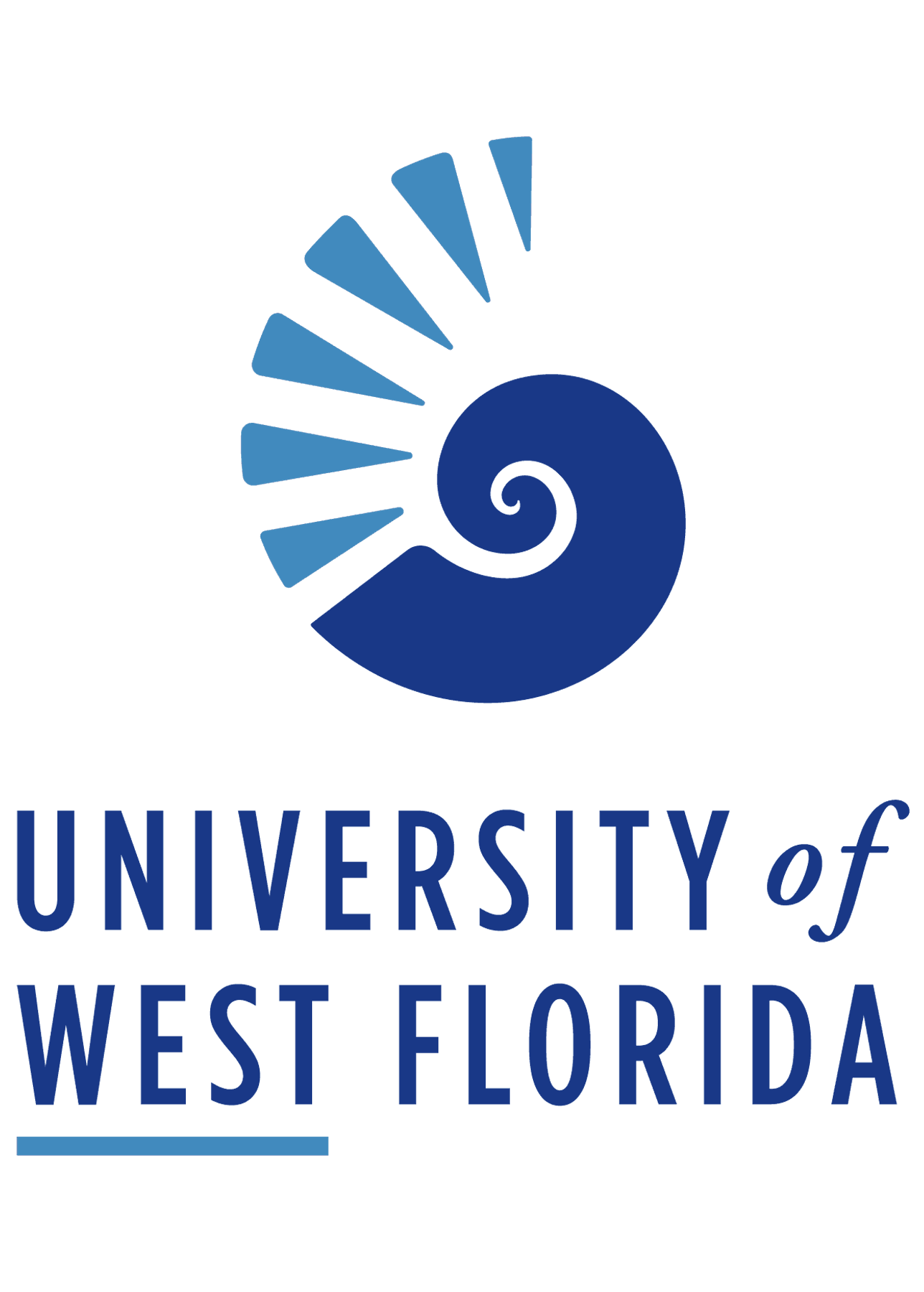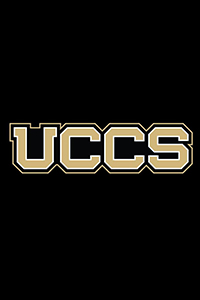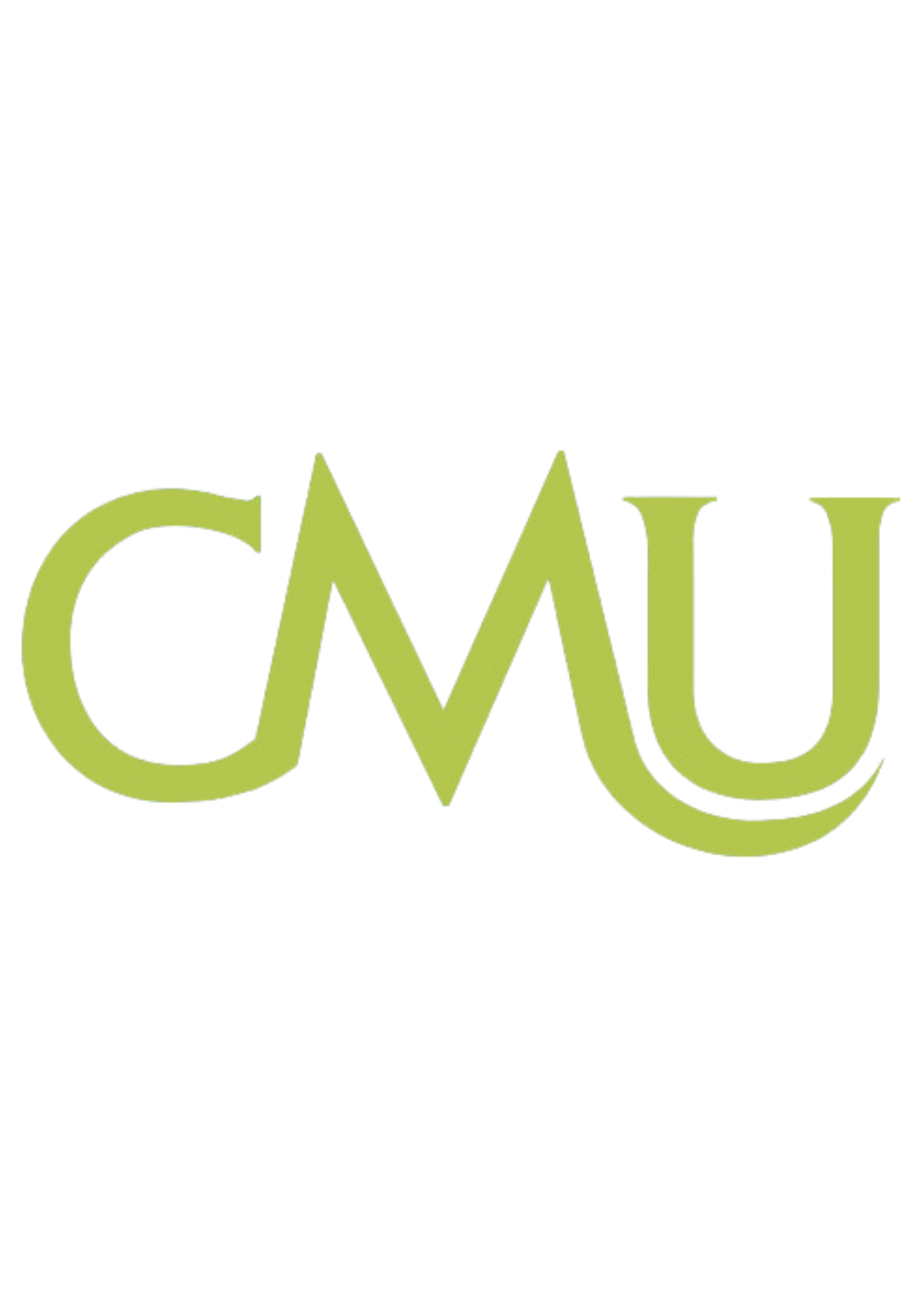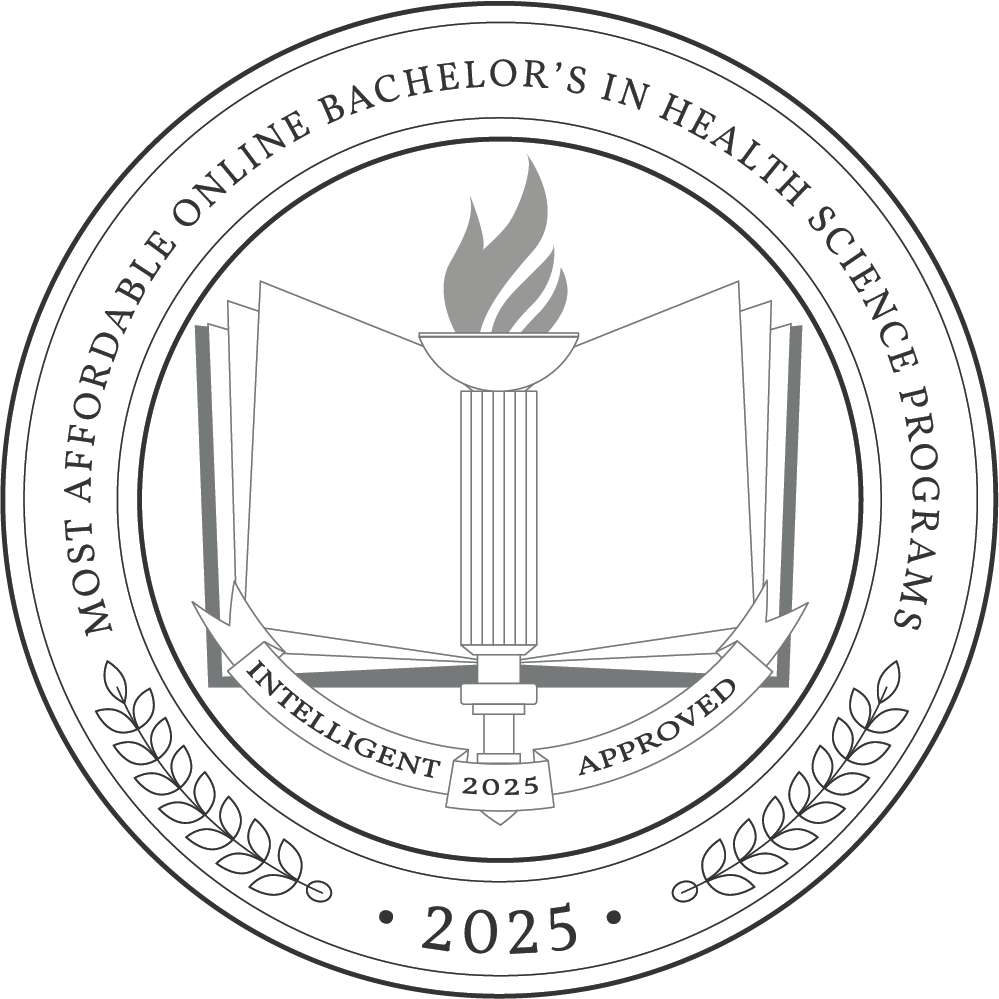Pursuing a career in health science is rewarding and fulfilling, but it can quickly become expensive. It can be challenging for aspiring patient health advocates and community health workers to find a budget-friendly and flexible online degree program to meet their goals. Luckily, we researched and compiled a list of the most affordable online bachelor’s in health science programs tailored to meet your academic needs in a virtual setting.
This article delves into the overall cost of a bachelor’s degree, providing comprehensive financial aid guidance. Additionally, we guide you through the crucial process of selecting the right program, ensuring you make an informed decision aligned with your career aspirations and financial considerations.
Why Trust Us
The Intelligent.com Higher Education Team is dedicated to providing students with independent, equitable school and program rankings and well-researched resources. Our expert-driven articles cover topics related to online colleges and programs, paying for school, and career outlooks. We use data from the U.S. Department of Education’s College Scorecard, the National Center for Education Statistics, and other reputable educational and professional organizations. Our academic advisory team reviews content and verifies accuracy throughout the year for the most current information. Partnerships do not influence rankings or editorial decisions.
- Analyzed over 2,000 national, accredited, and nonprofit colleges and universities
- 800+ rankings pages are reviewed and updated yearly
- Content is informed by reputable sources, surveys, and interviews with academic advisors and other experts
- Over 100 data points are reviewed for accuracy and quality throughout the year, including sources
How we rank schools
Our list features the best affordable online Health Science degree programs at top colleges nationwide. Each school featured is a nonprofit, accredited institution — either public or private — with a high standard of academic quality for post-secondary institutions.
We evaluated each school’s program on tuition costs, admission, retention and graduation rates, faculty, reputation, and the student resources provided for online students. We collected data from trusted sources like the National Center for Education Statistics, individual school and program websites, school admissions counselors, and other data sources. Then, we calculated the Intelligent Score on a scale of 0 to 100 based on the following criterion:
Academic Quality:
- Admission rate versus enrollment rate
- Retention rate of students who return after year one
- Accreditation status (regional and programmatic)
- Nonprofit status, both private and public institutions
Graduation Rate
- Overall graduation rate
- Total number of currently enrolled students, including diversity metrics
- Student-to-faculty ratio
Cost and ROI
- In-state and out-of-state per-credit tuition rates and fees
- Required credits to graduate
- Earning potential after graduation
- Availability of federal student loans, scholarships, and other financial aid options
Student Resources
- Available student services for online-only and hybrid programs
- On-campus amenities like tutoring centers and the number of libraries
Read more about our ranking methodology.
Most Affordable 28 Online Bachelor’s in Health Science Programs
FiltersInstitution Type
Status
- Intelligent Score
- Alphabetically By University Name
- Acceptance Rate
- Enrollment
- In-state Graduate Tuition
- Out-of-state Graduate Tuition
- In-state Undergraduate Tuition
- Out-of-state Undergraduate Tuition

University of Florida
Intelligent Score: 99.56In-state: $4,477
Out-of-state: $25,694
In-state: $10,770
Out-of-state: $10,770
SAT: 1290-1460
ACT: 29-33
Resident: $112
Non-Resident: $500
Online
Southern Association of Colleges and Schools Commission on Colleges
120

Seminole State College of Florida
Intelligent Score: 98.14In-state: $20,782
Out-of-state: $28,096
In-state: NA
Out-of-state: NA
SAT: NA
ACT: NA
$92
Online, On-Campus
Southern Association of Colleges and Schools Commission on Colleges
120

Texas Woman's University
Intelligent Score: 96.43In-state: $94
Out-of-state: $77
In-state: $48
Out-of-state: $48
SAT: Considered (not required)
ACT: Required
Resident: $238
Non-Resident: $648
Hybrid
Southern Association of Colleges and Schools Commission on Colleges
120

University of South Dakota
Intelligent Score: 95.70In-state: $7,697
Out-of-state: $11,172
In-state: $6,062
Out-of-state: $6,062
SAT: 1000-1245
ACT: 20-25
$355
Online, On-Campus
Higher Learning Commission
120

West Texas A&M University
Intelligent Score: 95.19In-state: $5,748
Out-of-state: $7,195
In-state: $4,968
Out-of-state: $4,968
SAT: 920-1130
ACT: 18-23
In-State: $235
Out-of-State: $673 - $752
Online
Southern Association of Colleges and Schools Commission on Colleges
120

Florida Atlantic University
Intelligent Score: 93.35In-state: $2,522
Out-of-state: $14,374
In-state: $5,467
Out-of-state: $5,467
SAT: 1060-1220
ACT: 21-26
In-State: $203
Out-of-State: $721
Hybrid
Southern Association of Colleges and Schools Commission on Colleges
120

Indiana University
Intelligent Score: 92.33In-state: $9,815
Out-of-state: $36,194
In-state: $9,786
Out-of-state: $9,786
SAT: 1120-1350
ACT: 24-31
In-State: $317
Out-of-State: $1,122
Online
Higher Learning Commission
120

Wilmington University
Intelligent Score: 92.20In-state: $11,430
Out-of-state: $11,430
In-state: $8,784
Out-of-state: $8,784
SAT: N/A
ACT: N/A
$419
Online, On-Campus
Middle States Commission on Higher Education
120

University of West Florida
Intelligent Score: 91.95In-state: $3,735
Out-of-state: $16,004
In-state: $7,088
Out-of-state: $7,088
SAT: 1060-1230
ACT: 21-27
In-State: $219
Out-of-State: $342 - $648
Online
Southern Association of Colleges and Schools Commission on Colleges
120

Arizona State University
Intelligent Score: 91.88In-state: $10,710
Out-of-state: $28,800
In-state: $11,720
Out-of-state: $11,720
SAT: 1100-1320
ACT: 21-28
$574
Online
Higher Learning Commission
120

Georgia Highlands College
Intelligent Score: 91.12In-state: $20,340
Out-of-state: $26,692
In-state: NA
Out-of-state: NA
SAT: 480 or higher
ACT: 17 or higher
In-State: $101
Out-of-State: $391 - $398
Hybrid
Southern Association of Colleges and Schools Commission on Colleges
120

Georgia Southern University
Intelligent Score: 89.63In-state: $4,371
Out-of-state: $15,425
In-state: $4,986
Out-of-state: $4,986
SAT: 993-1170
ACT: 18-24
$199
Online
Southern Association of Colleges and Schools Commission on Colleges
124

West Virginia State University
Intelligent Score: 88.53In-state: $7,912
Out-of-state: $13,600
In-state: $8,224
Out-of-state: $8,224
SAT: 870-1090
ACT: 17-22
$344
Online
Higher Learning Commission
120

Washburn University
Intelligent Score: 88.15In-state: $8,652
Out-of-state: $19,656
In-state: $9,416
Out-of-state: $9,416
SAT: N/A
ACT: N/A
$439
Online
Higher Learning Commission
120

Shawnee State University
Intelligent Score: 87.14In-state: $8,604
Out-of-state: $14,647
In-state: $10,156
Out-of-state: $10,156
SAT: N/A
ACT: N/A
In-State: $300
Out-of-State: $331
Online
Higher Learning Commission
120

Bellevue University
Intelligent Score: 83.41In-state: $7,176
Out-of-state: $7,176
In-state: $10,710
Out-of-state: $10,710
SAT: N/A
ACT: N/A
$449
Online
Higher Learning Commission
127

University of Colorado Colorado Springs
Intelligent Score: 83.24In-state: $38,878
Out-of-state: $66,516
In-state: $46,012
Out-of-state: $46,012
SAT: 1000-1270
ACT: 21-28
In-State: $506
Out-of-State: $706
Online
Higher Learning Commission
120

Central Methodist University
Intelligent Score: 81.82In-state: $5,950
Out-of-state: $5,950
In-state: $6,075
Out-of-state: $6,075
SAT: N/A
ACT: N/A
$275
Online
Higher Learning Commission
120
Cost Breakdown for an Online Bachelor’s in Health Science Program
Pursuing an online bachelor’s in health science offers exciting opportunities for expanding your skillset in a flexible and accessible learning format. However, navigating the additional costs is imperative for anyone beginning their educational pursuits. Below, we’ve broken down the key cost components of earning this degree online.
- Tuition: Typically assessed per credit hour, online health science undergraduate degrees may range from $300 to $600 per credit. Part-time students often prefer this option for its flexibility, while full-time students may opt for per-term tuition when available.
- Fees: Various fees, including technology support, academic resources, and library access, can add around $100 to $200 per term. These fees contribute to online infrastructure and support services.
- Personal technology: Students need a reliable computer, hardware, and Wi-Fi to complete course requirements. Costs will vary depending on personal preferences, but a budget of $800 to $1,500 is typical for these items.
- Books and other learning materials: Course materials and textbooks may cost $100 to $300 per course. Some programs offer digital materials, potentially reducing costs.
While these costs can add up, it’s important to remember the expenses that online students avoid, such as room and board, which can save thousands of dollars annually.
Factors Influencing the Cost of an Online Bachelor’s in Health Science Program
Beginning your online health science degree also means understanding the various factors that can cause tuition prices to fluctuate, as this can help ensure that you enroll in an affordable program.
- Public vs. private institution: Public institutions often have lower tuition rates as they receive state funding, making education more affordable. Independent of state support, private schools tend to be pricier due to reliance on tuition and private funding.
- Nonprofit vs. for-profit: Nonprofit online institutions generally prioritize education over profit, potentially leading to lower tuition. For-profit institutions, driven by profit motives, may have higher tuition to sustain their business model.
- Student residency status: In-state residents typically enjoy lower tuition rates at public universities than out-of-state students because state residents contribute to state funding through taxes, reducing the financial burden on in-state students.
- Student military status: Active-duty military members and veterans often benefit from reduced tuition rates or specific military tuition assistance programs. Many online institutions recognize and support military personnel, acknowledging their service through financial incentives.
These factors collectively determine tuition prices and influence the cost of online education based on the institution’s classification, student residency, and military status.
How to Pay for an Online Bachelor’s in Health Science Degree
Out-of-pocket
For many students and their families, paying for tuition out-of-pocket can be made manageable by leveraging payment plans. Opting for these plans can allow you to pay tuition in feasible installments, avoiding the interest rates associated with federal and private loans.
This approach helps many students maintain financial control over their education, ensuring a steady progression in their academic pursuits without the long-term implications of loan obligations.
Federal student loans
You can also consider federal loans to help fund your education, but taking a strategic approach is important to avoid long-term financial strain. Federal loans offer lower interest rates and flexible repayment terms than private loans, making them a preferable resource to bridge financial gaps. Utilizing these loans wisely can provide financial support for your academic pursuits while minimizing your debt burden.
Private education loans
You may also come across private education loans as a funding option, but using these as a last resort is essential. These loans often carry higher interest rates and less flexible terms than federal options, so practicing caution is vital. Look into scholarships, grants, and federal loans first, reserving any private loans for situations where alternative funding falls short.
Scholarships
Highly preferable, scholarships don’t require repayment and can significantly offset educational costs. These merit or need-based awards recognize academic achievements or specific qualifications, offering a sustainable and financially sound means to support your educational journey.
Grants
Like scholarships, grants are another form of preferable financial aid that doesn’t require repayment. These opportunities are mainly available for undergraduate students who demonstrate financial need on their FAFSA. Federal Pell Grants and Supplemental Educational Opportunity Grants (SEOG) are standard options.
Additionally, many institutions provide their own grants to give financial support to eligible students.
Work-study
Work-study opportunities offer a practical avenue for funding your undergraduate degree. These programs allow students to work part-time, often on campus, to earn money directly contributing to their educational expenses. The roles are typically relevant to your field of study, providing valuable experience alongside financial support. By engaging in work-study, you can simultaneously offset costs and gain hands-on skills, improving your educational experience.
Employer tuition assistance
Those currently employed can leverage employer tuition assistance programs to finance their online degree. Many employers offer financial support for job-related education, covering some or all tuition costs. Employees should inquire about available assistance, eligibility criteria, and application processes with their HR departments.
Applying for Financial Aid
For most students in the United States, applying for financial aid begins with submitting the Free Application for Federal Student Aid (FAFSA). This form assesses financial need and provides various funding opportunities to eligible students — such as grants, work-study, and federal loans. To complete the FAFSA, you can access the form online and provide your financial information to determine your eligibility for these funding resources.
Learn more about the FAFSA
For a detailed walkthrough of the FAFSA process, check out our Ultimate FAFSA Guide. This resource offers step-by-step guidance on form completion, insights into eligible funding types, and valuable tips on handling specific questions related to household size and immigration status.
Student loan forgiveness and repayment
Student loan forgiveness in the United States remains uncertain. While the legislation is still up for debate, students need to avoid overborrowing.
For many students, that means seeking alternative financial aid to alleviate the repayment burden. “All avenues for scholarships, both from the school and from outside organizations, as well as grants from the state, should be looked into before officially taking out a loan,” says college counselor Dana Marvin. “These scholarships and grants can either lower the cost of the loan the student needs to take out, or best case scenario, completely cover the cost.” Staying informed on legislative changes and opting for responsible borrowing practices will ensure a more manageable path to financial success post-graduation.
How to Choose the Online College or University that’s Right for You
Step 1: Clarify what you want
For most students, choosing the right program starts with clarifying their preferences.
Start by identifying your intended specialization within health science — options could include nutrition, public health, healthcare administration, or clinical research. Then, determine the delivery format that suits your learning style, whether synchronous for real-time interaction or asynchronous for extra flexibility. Consider your preferred scheduling commitment, opting for part-time or full-time enrollment based on your lifestyle and personal obligations.
By aligning your academic goals with these critical factors, you set the foundation for a successful online learning experience centered around your unique needs and professional goals.
Step 2: Research schools and programs
Researching online schools for your bachelor’s in health science begins with ensuring accreditation. Accreditation illustrates that the program meets rigorous academic standards and will be respected by future employers.
To refine your search, consider the following questions:
- What is the program’s reputation in the field?
- Is the faculty experienced and accessible in an online environment?
- What is the student-to-faculty ratio?
- Are there networking opportunities or internships?
- How affordable is the school compared to your other options?
You can gather this information through school websites, student testimonials, and discussions with academic advisors.
Step 3: Prepare for applications and tests
Once you’ve shortlisted schools for your health science degree, prepare for applications by:
- Gathering transcripts and recommendation letters
- Writing an enthusiastic personal statement
- Checking for specific prerequisites or supplemental materials
While some schools have moved to test-optional policies, many still require standardized test scores. If your school mandates SAT or ACT scores for admission, consider enrolling in a test prep program to boost your performance.
Step 4: Select your program
If you submit multiple applications, you may receive numerous admission offers. Choosing the program you’ll attend can feel daunting, but you can feel confident by taking a strategic approach.
Revisit factors like the availability of your intended specialty, curriculum alignment with your professional goals, and faculty experience. You should also assess the total cost of the degree and explore financing options to ensure that you’re making a wise decision that aligns with your education and financial aspirations.
Step 5: Determine how you’ll pay for your degree
Craft a strategic plan for financing your degree by prioritizing options that don’t require repayment — like scholarships and grants. Remember that some universities offer payment plans, which can make paying for at least a portion, if not all, of your education manageable for many individuals. If needed, you can bridge financial gaps with federal loans known for their favorable terms.
Consider work-study opportunities and explore employer tuition reimbursement programs, both valuable aids that can offset the financial burden instead of adding to your debt. By taking a balanced approach, you can ensure a well-managed financial journey through your academic pursuits.


